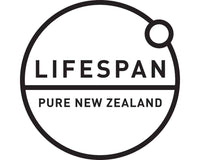
Introducing Dahlia4: Natural Blood Glucose Support
Developed by Otago University, Dahlia4 is a groundbreaking natural supplement for managing blood glucose levels. Combining the best of nature and science, it offers a safe and effective way to support your health.
Why Dahlia4?
Natural Ingredients: Carefully selected for their synergistic effects on blood glucose.
Scientifically Proven: Rigorously tested for efficacy and safety.
Holistic Health: Aids in overall well-being when used alongside a balanced diet and exercise.
Dahlia4 is more than a supplement; it's a step towards a healthier, more balanced life. Experience the natural way to manage your blood glucose with Dahlia4.
Recent posts

About the Author
Lifespan NZ, bolstered by over 60 years of experience, features a team of experts including Ben Winters, a key member and the author of our insightful blogs. Specialising in refining extracts from a diverse range of natural sources and well-versed in farming practices, our team's expertise was a pivotal reason why Otago University chose Lifespan NZ to develop a unique, research-backed blood sugar supplement, into an end product.

Measuring Blood Glucose at Home
By Ben Winters
The Importance of Being Aware of Blood Glucose
While the term 'blood glucose' might seem medically complex, having an awareness of blood sugar levels is increasingly relevant for supporting a balanced lifestyle. This is especially pertinent in a world where conditions such as diabetes are prevalent.
Discussing 'blood glucose' involves talking about the sugar transported via the bloodstream to energize the body's cells.
This sugar originates from the carbohydrates in food, which are broken down into molecules like glucose. The body's natural processes work to balance glucose levels, contributing to smooth bodily functions.
The hormone insulin, produced by the pancreas, is involved in managing blood glucose and aids in cellular energy utilization.
Excess glucose, however, can lead to complications.
Diabetes, for instance, is associated with inadequate insulin production or usage, resulting in raised glucose levels, a condition known as hyperglycemia. If not addressed, this can lead to various health issues impacting organs and systems.
Conversely, hypoglycemia occurs when blood glucose levels fall too low, potentially causing symptoms such as confusion and shakiness. Severe hypoglycemia needs immediate medical attention.
In New Zealand, there's a noted increase in diabetes diagnoses, particularly among Māori and Pacific peoples. The prevalence of diets high in processed foods and sugars, along with lifestyle factors, underscores the importance of blood glucose awareness.
Personal Monitoring of Blood Glucose
Understanding and monitoring blood glucose is vital for anyone invested in their health. Self-monitoring is a proactive way to manage health and can contribute to a healthier lifestyle.
Home Testing Methods
For home monitoring, there are two main methods: blood glucose meters and Continuous Glucose Monitoring (CGM) systems. Blood glucose meters, or glucometers, offer instant readings. They involve using a lancet to draw a blood sample, which is then tested with the meter. Modern devices are designed for ease and minimal discomfort.
CGMs provide a continuous overview of glucose levels through a sensor placed under the skin. These devices can transmit data to a display device or smartphone app, offering detailed insights.
The choice between these methods depends on individual preferences, healthcare advice, and comfort level. Glucometers are generally more accessible and suited for infrequent checks, while CGMs provide comprehensive data, useful for those needing close monitoring or insulin management.
Home monitoring offers immediate feedback, empowering individuals with information that can influence daily lifestyle choices.





